Last Updated on April 30, 2024 by Nikole
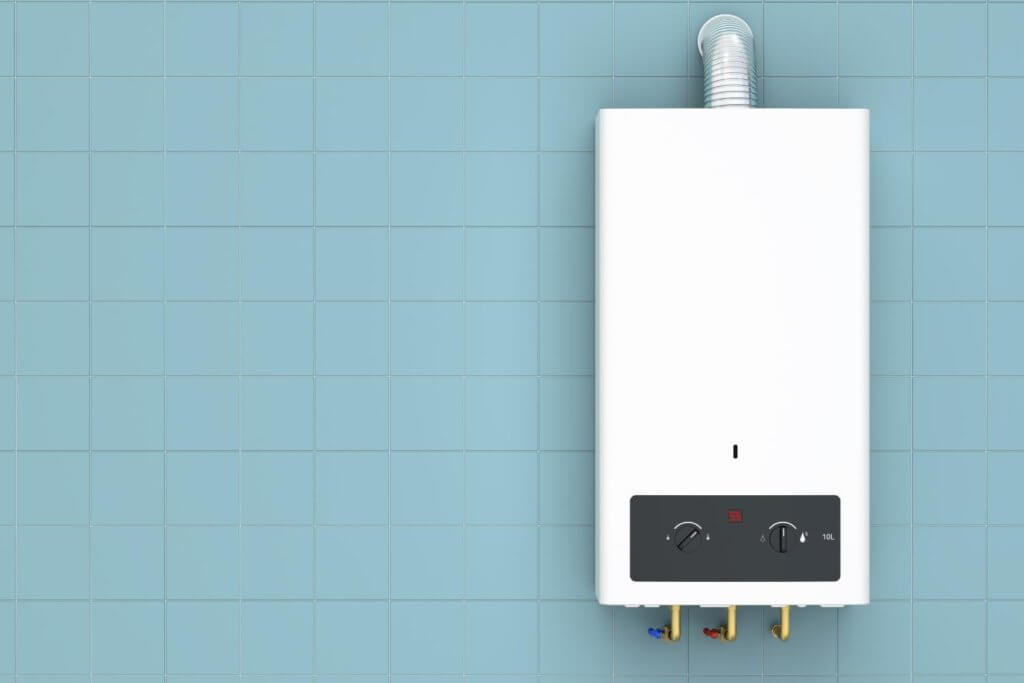
Taking a shower or washing dishes in your camper van kitchen without hot water during the winter can be miserable.
You can get hot water in your camper van by purchasing and installing a water heater for all your plumbing appliances. In some cases, you may not need to install a water heater to get hot water.
A water heater may seem like a luxury until you feel that icy cold water hitting your skin after spending the day in freezing weather. Needless to say, you may want to add this to your camper van winter gear.
Hi! Nikole and Clark Stone here. In this post, we will go over the different types of water heaters you can use in your camper van. Even if you have a small camper van, like us, you can still find a water heater that suits your needs.
This post may contain affiliate links, which means I’ll receive a commission if you purchase through my links, at no extra cost to you. Please read full disclosure for more information.
1. LPG/Propane Water Heaters
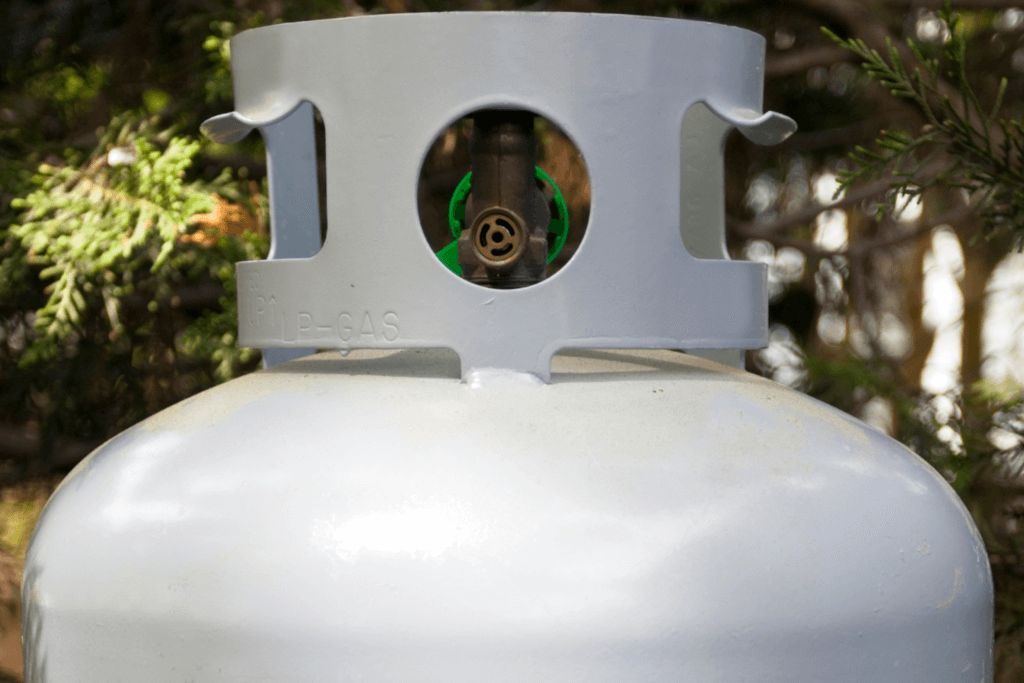
LPG (Liquified Petroleum Gas) also known as tankless heaters are one of the most popular camper van water heater options on the market, and for several reasons:
- Easy to install
- Flexible
- Portable
The main downside to using an LPG water heater is the gas part. Like with all propane or gas items, you will need to use it in a well-ventilated area or create a vent for it.
Check out this Youtube video for a summary of how one of these units can be installed.
Many van lifers use the water heater on the outside of their camper van, and keep the unit portable- this way, you don’t need to worry about ventilating combustion gases. You can also install the unit in a bathroom area- just make sure it vents outside your living quarters.
You can use a propane water heater with just a shower, or you can plumb it through the entire van and use it for washing dishes, showers, and making coffee.
Propane makes for the best camper van water heaters because of its fuel efficiency, portability, and water heating capabilities.
You can purchase tanks that run off just propane which is super efficient. You can also find options that switch between electricity (for campgrounds) and gas (for boondocking).
Pros
- Fairly Cheap upfront costs
- Portable
- Easy installation process
Cons
- High maintenance cost
- Needs ventilation
- Refill the gas tanks, which could be pricey
How Propane Heaters Work
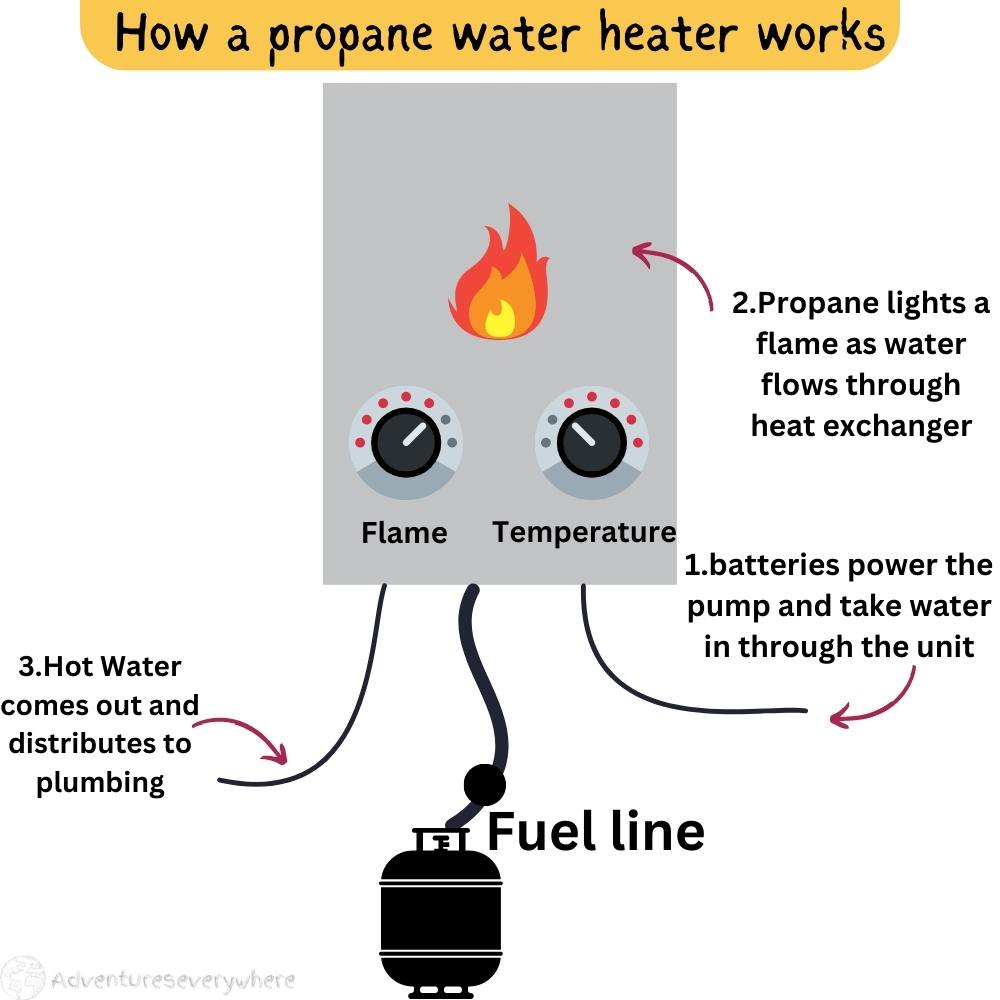
Tankless Propane heaters for camper vans work as such:
Step 1: The unit draws in cold water (if the water is too cold, the unit will not work) through a pump located on the outside ( sometimes it’s on the inside).
Step 2: A flame is lit by using fuel from the propane tank.
Step 3: A heat exchanger warms up. The cold water passes through the heat exchange and heats up to be dispensed through your shower or sink.
Our Propane Water Heater Recommendation


The Camplux Tankless 1.32 GPM is the best and most popular water heater for camper vans. It can heat 1.32 Gallons of Water Per Minute to the peak temperature of 114.8℉ (46℃).
This heater needs two D-size batteries and gas to operate, making it more efficient.
A shower head comes with a heater and is capable of water pressure above 3.0 PSI.
For portability, this heater only weighs 10 pounds and won’t weigh your camper van down compared to other heaters. Included on the unit, is a handle for easy transport from the back of the van to wherever you want to take it.
2. Combi Boilers
Combi Boilers can heat water in your camper van using either propane or electricity. Unfortunately, the power consumption is high- this water heating method should only be used while hooked up to campsites. If you would like an electric water heater, try a 12V or propane water heater for boondocking purposes.
Some of these heaters can run off propane- which you will need refillable tanks. Others can run off diesel fuel, which will need connections to your camper van gas lines.
Here is a great combi installation by Greg Virgoe and he goes into great detail.
You can place one of these water heaters anywhere in your van. I should note, however, that it is NOT portable. If you are using propane to power the Combi heater, always make sure there is a vent.
Combi Boilers doubles as a water heater and provide a way to heat your van in the winter.
How Combi Boilers Work
Step 1: The internal heating elements turn on once fueled by whatever power source it’s hooked to.
Step 2: Water pumps over the elements and heats up.
Step 3: You can enjoy hot water and a warm camper van.
Pros
- Doubles as a water heater and a heater
- You can switch between electric and propane powering modes
Cons
- Most Combi water heaters are heavy and could weigh your van down
- Pricey
- Involve a somewhat complicated installation process
Which One We Recommend


The Suburban Sw6De 6 Gallon combi boiler is perfect for any size camper van. Many customers were satisfied with easy installation and didn’t need to take it to a professional.
This water heater unit can heat 10.2 gallons of water with its 12,000 BTU input. It requires 1,440- watts to run the element. To heat more gallons of water, you will need to use gas and electricity to get six more gallons of hot water per hour.
This combi heater will need to be installed outside of your camper van with plumbing for your shower and sink going inside and propane lines on the outside.
3. Electric Water Heaters
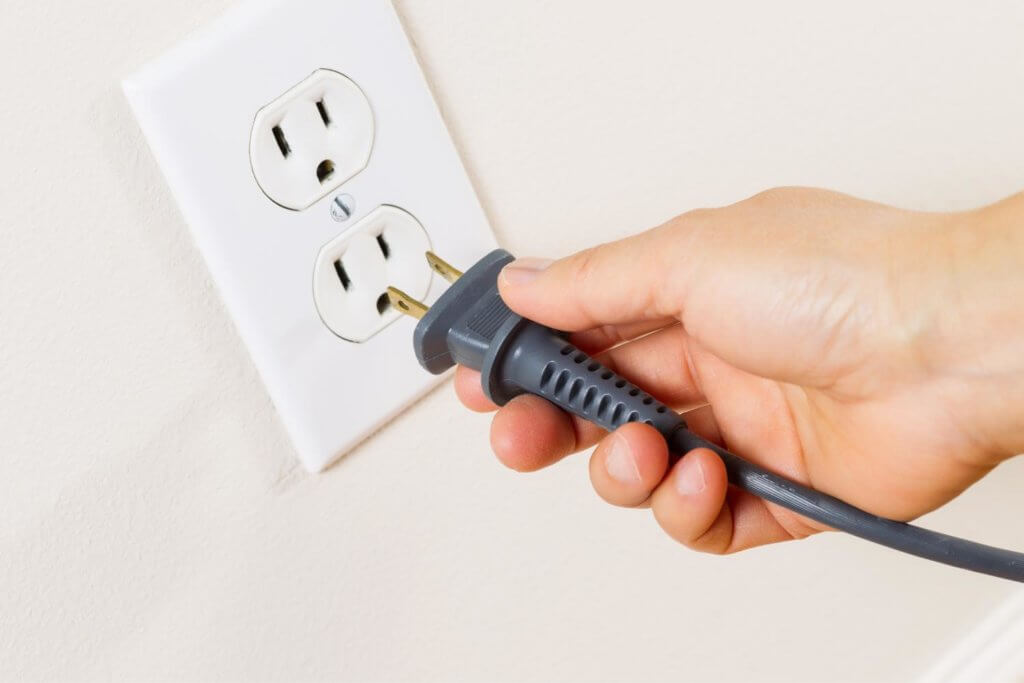
Electric water heaters are not the best choice when it comes to heating water for long showers in your van. Most electric units only come with a 2.4 to 4-gallon capacity meaning you will need to soap up without the shower running and hope your water doesn’t run out in the dead of winter.
Another downside to electric water heaters is the electricity needed to run them. You will need a generator or shore power to operate it.
Why even use an electric unit if there are so many downsides? Here are a few good things these units bring to the table:
- They run quieter than gas models
- They offer a cheap water heater option
- Less likely to break down (this is due to fewer parts than a gas water heater)
How Does an Electric Camper Van Water Heater Work?
Electric water heaters work similarly to gas water heaters
Step 1: cold water pumps through the tank, located inside the water heater.
Step 2: There are immersion heating elements that become submerged in water.
Step 3: The heating elements heat the water to the desired temperature.
Step 4: Hot water sends through connected plumbing, shower head, or whatever you decide to connect.
Pros
- Quiet running
- Cheap than most other options
- Easy to maintain and fix
Cons
- Require electricity to run
- Only heats a small amount of water at a time
Our Recommendation


The Ariston Andris is a perfect camper van water heater, especially if you are one to take short showers or only use the unit for washing dishes.
The unit can only heat 4 gallons of water at a time, which is pretty good for a portable water heater. There is also an option to purchase an 8-gallon heater with this brand.
1440 watts, 120 volts is what the Ariston Andris runs on, so make sure your power supply can run it. I would recommend using shore power or bringing along a generator.
The small size of the water heater, 14.25″W x 14.25″H x 12.75″D, makes it easy to install anywhere in a small camper van. It only weighs 15.5 pounds, which is light compared to other water heaters.
4. Calorifiers
Calorifiers are an interesting way to heat water in your camper van because they use the camper van’s engine to heat the water.
To operate this type of water heater, you connect your coolant pipes and the calorifier for the water to cycle through the coolant system.
Many sites will claim that you don’t need any other resources to operate a calorifier other than the vehicle engine, but you do need to power the pump. Some Calorifiers have the option of switching to an immersion heater which may require shore power to operate.
Keep in mind, you will need to run your engine to heat your water. If you are boondocking and not moving your vehicle for several days, this will not be a good option for you.
The water has been said to keep through the whole night, and it’s possible to still have lukewarm water by the morning time.
How Does it Work?
Step 1: Water will cycle to the pipes you connected to your engine’s coolant system.
Step 2: As the water moves through the coolant system, it heats up.
Step 3: The water cycles back to the Calorifier’s tank.
Step 4: Water is sent through your plumbing and to whatever appliances you have hooked up.
Pros
- Uses the engine to heat the water, meaning no heating elements within the unit, some do have immersion heaters.
- Water stays hot for several hours.
Cons
- You have to run your van to get hot water.
- Somewhat bulky system.
Our Recommendation
We are not affiliated with Surejust Manufacturing, but we have heard a few good things about their 10-liter calorifier and thought it was worth a mention.
This unit is easy to install, and the company includes detailed and involved instructions.
Here are all the instructions from the Surejust website.
The water heats to whatever the engine temperature is (typically 185°F or 85°C). A thermostatic mixer valve comes with the device for safety reasons.
A heater element is located on the inside to help maintain heat when the engine isn’t running. However, the tank is insulated well enough to keep water warm for up to 12 hours.
5. Diesel/Gasoline Water Heaters
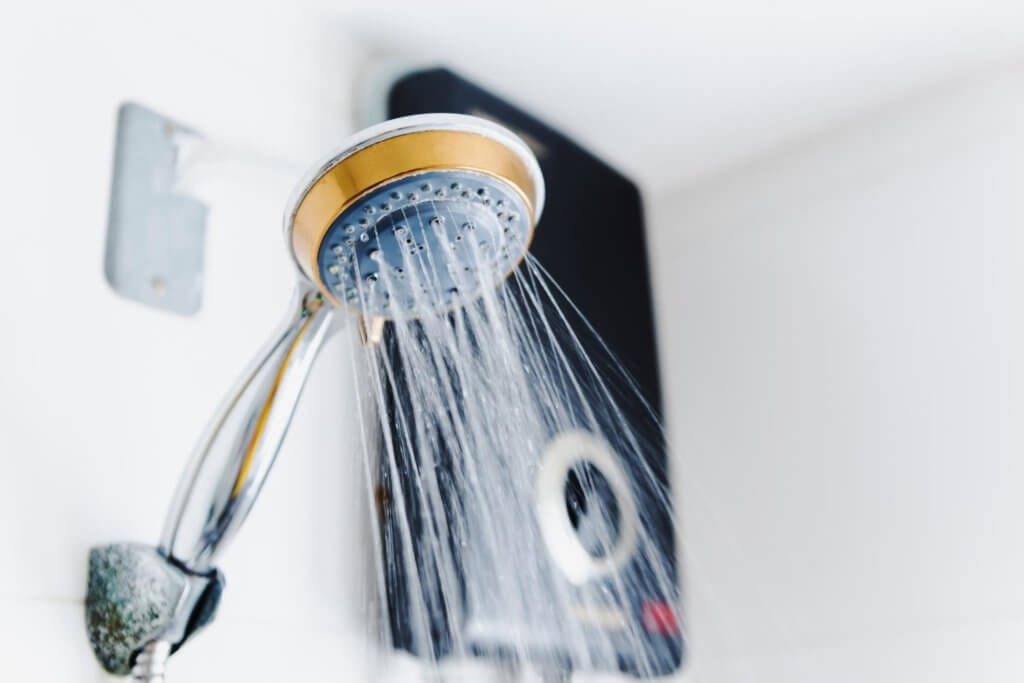
Diesel and gas water heaters serve two purposes: to heat your camper van or to heat water in your camper van. Diesel heaters are the most popular options, but you can find heaters that run on gasoline too.
The lines for these water heaters will need to hook up to your camper van fuel lines. You cannot use diesel heaters with gasoline vans, and vice versa-these units are made specific to their fuel type, and the hookups are specifically made to fit one or the other.
Even though you are using your fuel lines to fuel your heater, you may still need a 12v hook-up or batteries for the pump.
Pros
- Runs off of your vehicle fuels- saving power supply for other items
- Uses very little fuel ( less than half a gallon per hour, in most cases)
Cons
- Complicated install (may need a professional)
- Needs to vent outside the camper van
How Does a Diesel Water Heater Work
Step 1: The water heater unit pumps fuel and mixes it with air from the intake.
Step 2: The above step creates combustion, which creates heat.
Step 3: Water passes over the heat exchanger and becomes hot.
Step 4: The hot water runs between the heater and a hot water tank (located on the outside of the unit) through a coil.
Step 5: Hot water can now be distributed throughout your cabin.
What Diesel Unit We Recommend


The Espar Eberspacher Hydronic RV diesel water heater has 17000 BTU and runs on diesel and 12v.
Sometimes diesel water heaters will not work at higher altitudes, but the Espar Eberspacher has a controller to switch to different altitudes.
The kit comes with several items to help you install it, including:
- Mounting brackets
- Fixing bolts
- Wiring harness
- Electrical accessories
6. Wood Burners for Camper Van Water Heaters
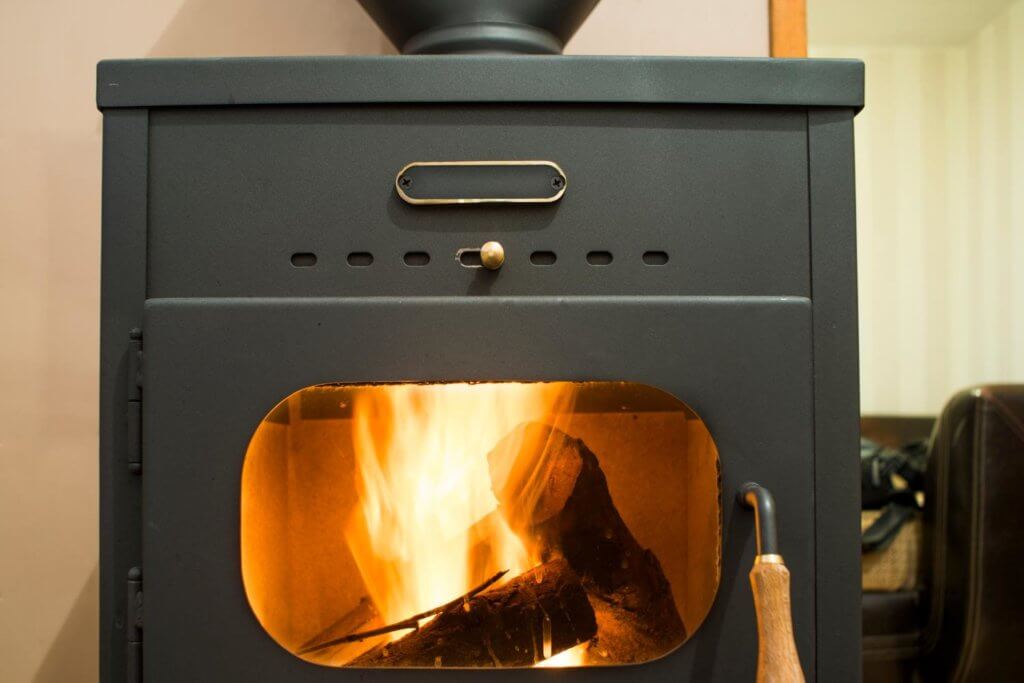
Have a wood burner as a heat source in your camper van? Why not use your wood burner as a water heater by installing a coil made of copper around the stove pipe?
You can also heat a pot of hot water on the top of the stove or install a back boiler to distribute hot water through your plumbing.
This method for heating water has been around for centuries, and it’s so effective people still use it today. I recommend only using a wood burner as your source of hot water if you already have one.
There is a huge downside to heating water this way- You need to find logs to fuel the wood stove to heat the water. Lighting a fire is your only option for getting hot water, which could make your van a bit balmy during the summer months.
How a Wood Burner Works to Heat Water
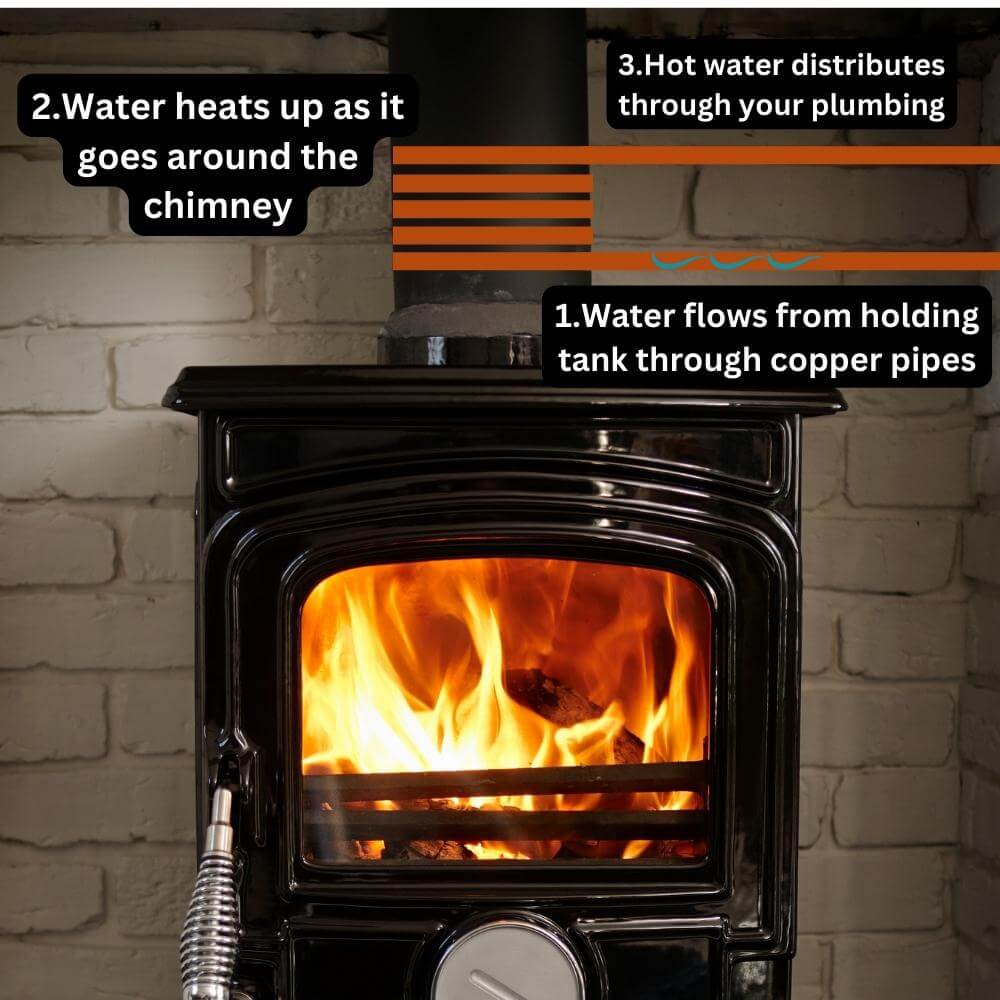
There are 3 ways you can use a wood burner for heating water in a camper van: we will go over the coil method that Mother Earth News designed.
Step 1: Wrap copper coils around the flute (chimney) of your wood burner. You will need to install a water pump as well.
Step 2: The water heats up while it flows to and around the coils.
Step 3: The water is then plumbed out into your camper van so you can enjoy a nice hot shower.
Pros
- You don’t need to worry about fuel other than wood
Cons
- Need to install a pump, thermostat, and pressure relief valve
- Wood burners pose a fire hazard
Which Wood Burner We Recommend


The Guide Gear wood stove burner is perfect for camper vans because of its compact size and lightweight. The burner only weighs 42 pounds, and the dimensions are 20″L x 11″ W x 13″H making it simple to fit in your space.
You can do pretty much anything with this burner, including heat up water for a shower, boil water in a tea kettle, cook bacon, and warm up your living quarters.
The unit is fully portable but can be installed permanently in your camper van. It features interlocking stove pipes and legs you can detach. All these items can be placed inside the stove for easy transport.
7. Boil Water on the Stove
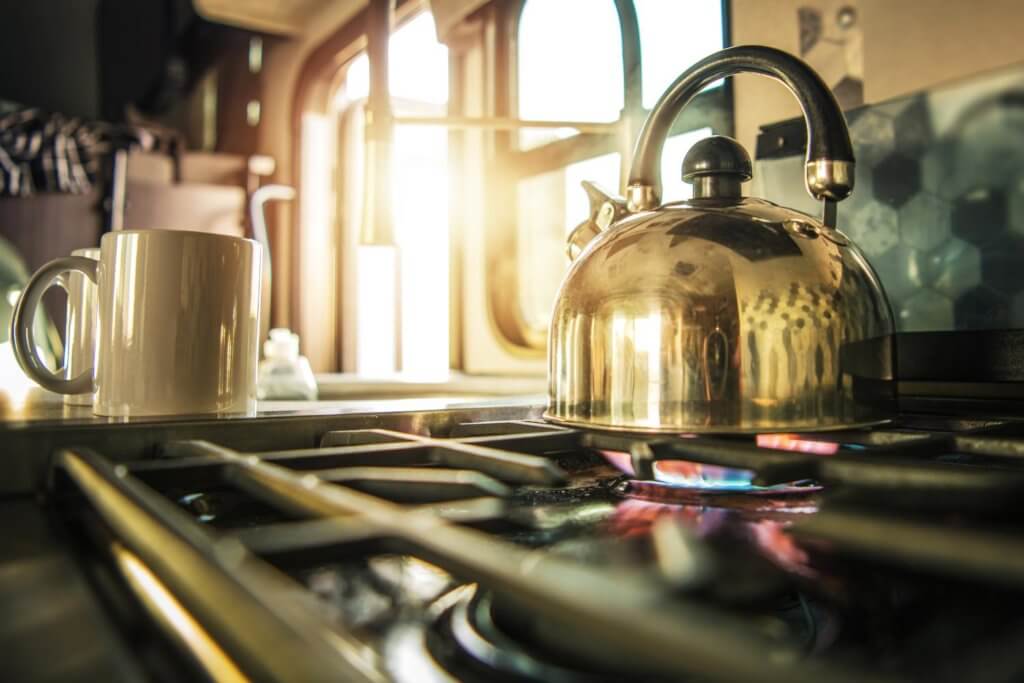
One old-fashioned way of heating your water is to heat it on the stovetop. We have certainly done this a few times for taking showers, washing dishes, and making coffee in our camper van.
A huge downside to this option is how much hot water you need to boil for an entire shower. We used 1 medium size pot of boiling water to 5 gallons of cold water, and it was warm enough for a comfortable shower with our battery-operated shower head– you should boil more water for a hotter shower.
It’s a good idea to carry a thermometer, at the very least test the water with your finger, so you don’t scorch yourself when showering. Place the thermometer in the water before running the shower.
Pros
- The cheapest way of heating water
- Don’t need fuel, except for what your stove takes
Cons
- It’s time-consuming dealing with hot and cold water mixing
- If you have a stove like ours, you may have to wait a while before the hot water boils
8. Solar Hot Water Heater
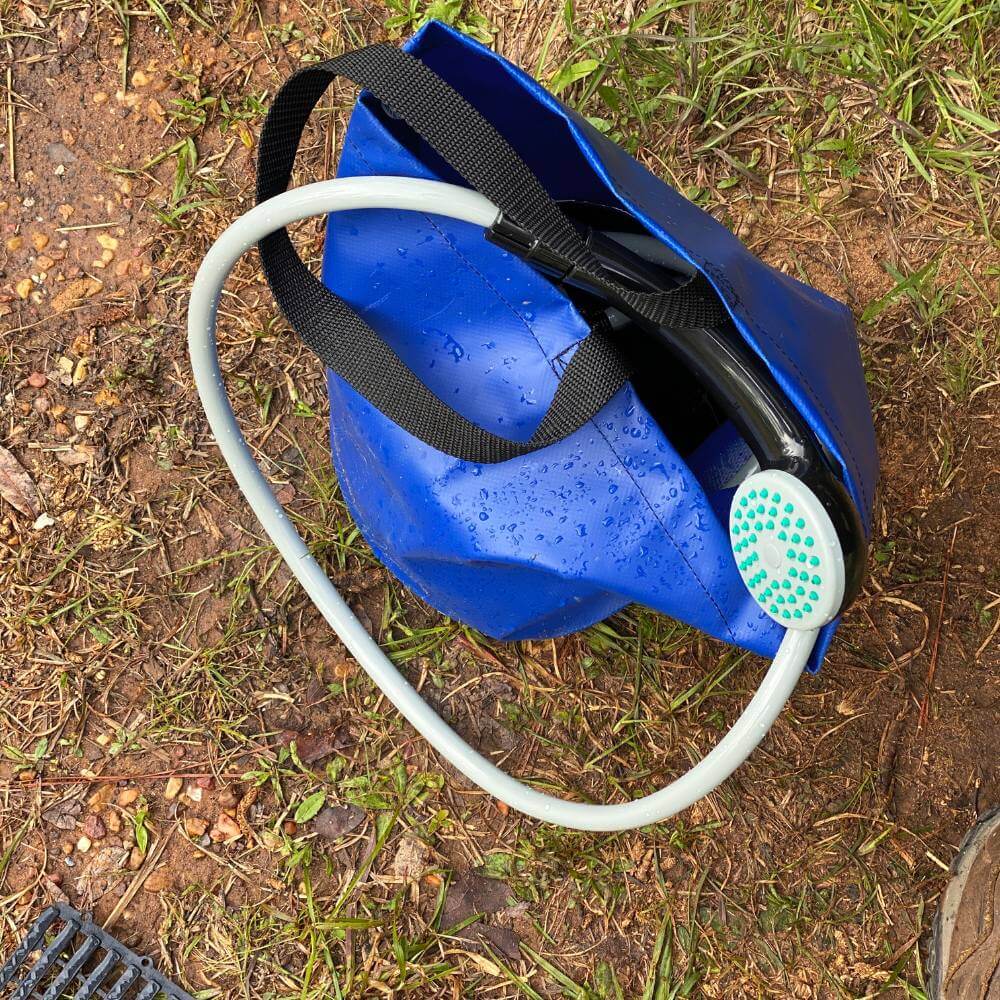
We have used solar water heaters in the dead of winter, and it worked… kind of. We had to wait all day for the water to heat in the sun, and even then, the water wasn’t quite hot enough for the winter time.
These water heaters may only be useful in the summertime when the sun hits the bag more during the day. Be careful because the sun could make the water too hot.
I don’t like this option for taking showers in a camper van because the temperature is unpredictable, and doesn’t work well in wintertime.
How Solar Water Heaters Work
Step 1: Fill the bag with water, and hang it where the sun will hit the bag the most.
Step 2: The water will need a few hours to heat, depending on how warm it is outside.
Step 3: Once you think the water is hot enough, use the shower head that comes with the unit and shower off.
Pros
- No fuel or electricity is needed to operate the system
- Easy setup
Cons
- Unpredictable because it needs the sun to warm up.
- Doesn’t work in the winter months
- The shower heads don’t have any pressure
Which Solar Shower We Recommend


The Unnweei Solar Shower comes with a 5-gallon bag to give you plenty of water to shower with.
Also included is a small shower head to hang from under the bag. You also have a small storage pouch for soaps or shampoos.
As long as you keep your showers short, you can get about 3 showers out of the entire bag. You can heat your water to about 113°F (45°C) in direct sunlight.
9. Immersion Water Heater
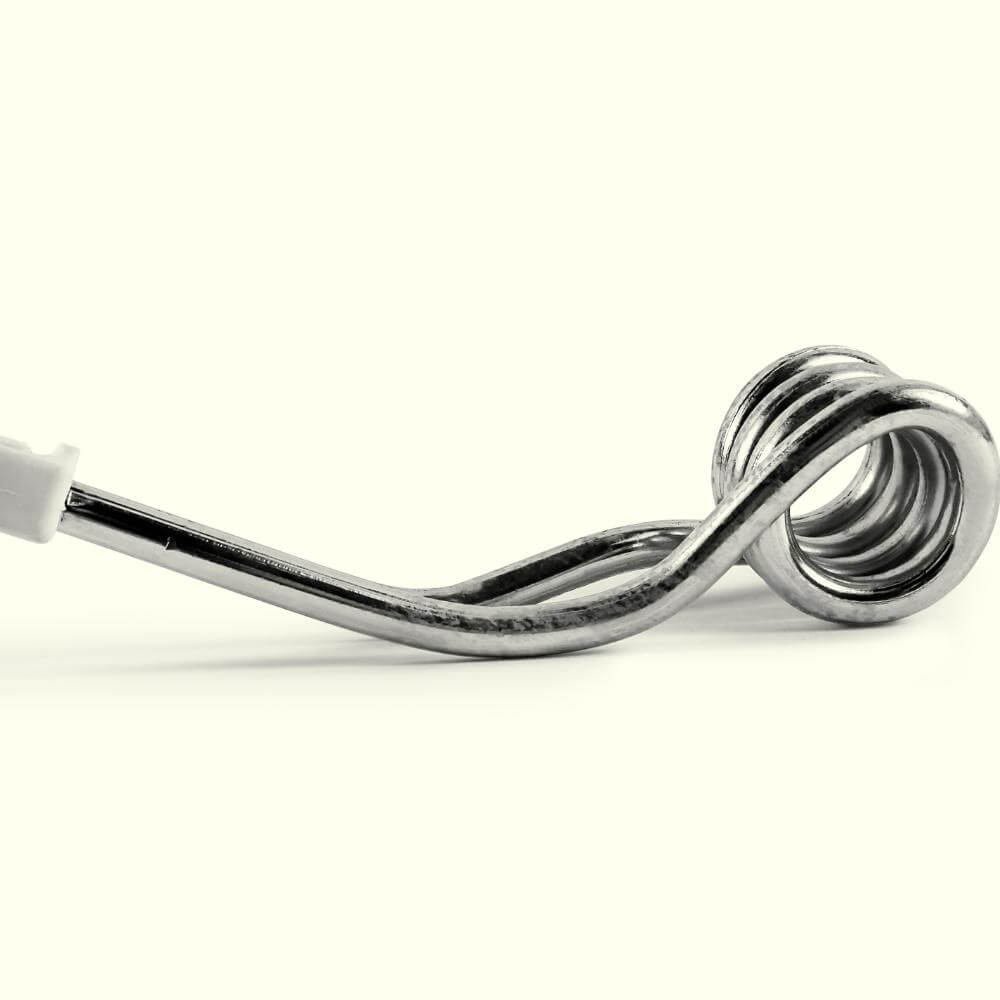
You can use an immersion wand to heat your water in your camper van. This method is similar to boiling water on the stove.
Make sure you have a ceramic bucket or something safe to heat your water in. If you use a plastic bucket, you may melt the sides with the wand.
This option may not be the best way to heat water in your van because it poses a hazard for fire and burns if you accidentally touch it. You never want to leave this item unattended or on when not in use.
You can get a 12v wand and plug it into your van’s 12v plug-in. Place the metal part of the wand in the water until it’s reached your desired temperature. Take a shower, drink coffee, or wash your dishes.
Pros
- Simple to understand
- You can use your vehicle battery to power it
Cons
- Poses a fire hazard
- Could burn someone if accidentally left plugged in and unattended
- May not heat a lot of water all at once
What to Look for When Buying a Water Heater for Your Camper Van
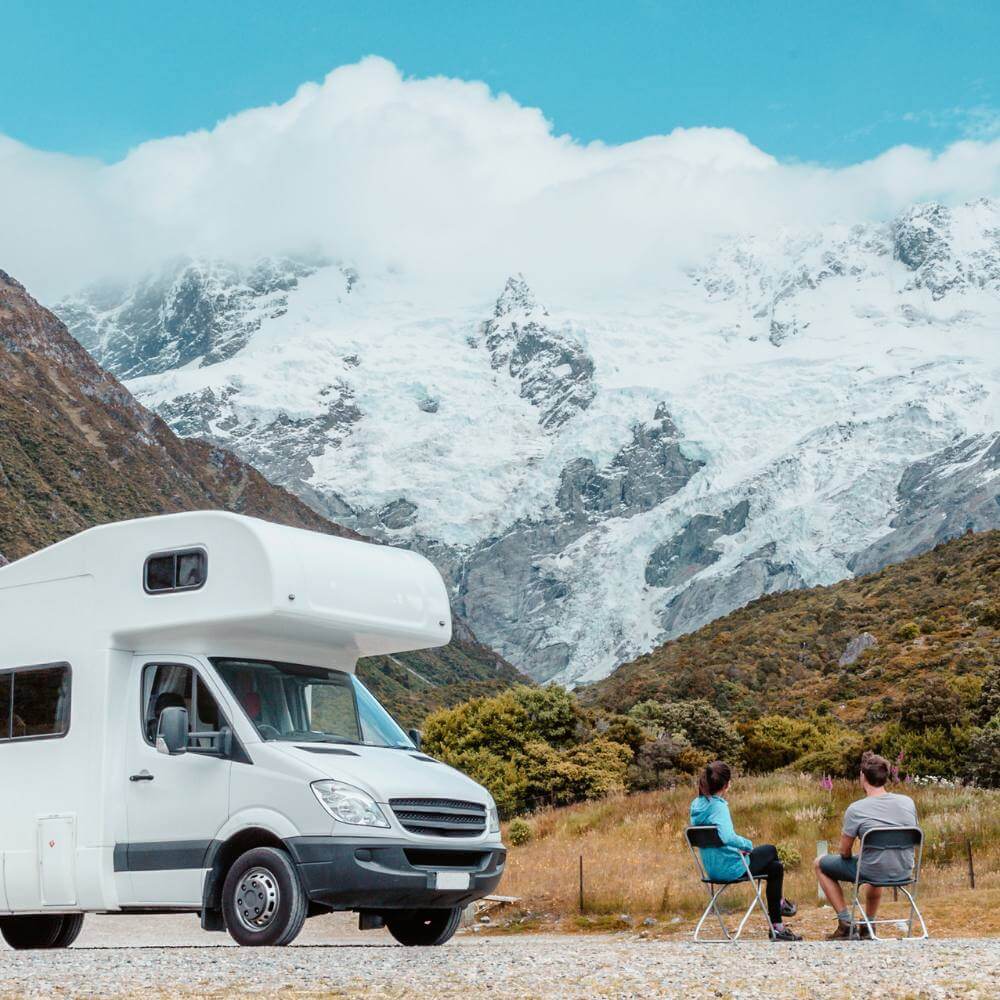
Picking the right water heater for van life comes down to a few things
- How big your van is
- What type of fuel do you need
- How much water you need
- Portability
Water Heater Size
The size of your water heater plays a big role in how much storage you have available in your camper van.
You want to hit the sweet spot where your water heater is small enough to accommodate the space you have yet large enough to heat an appropriate amount of water. Most van lifers shoot for a 4 to 6-gallon water tank.
You also need to consider the weight of your water heater. Carrying water is heavy enough- then add a few extra pounds to heat that water.
We love tankless water heaters because there is no separate tank to weigh down your van even more.
Tank vs. Tankless
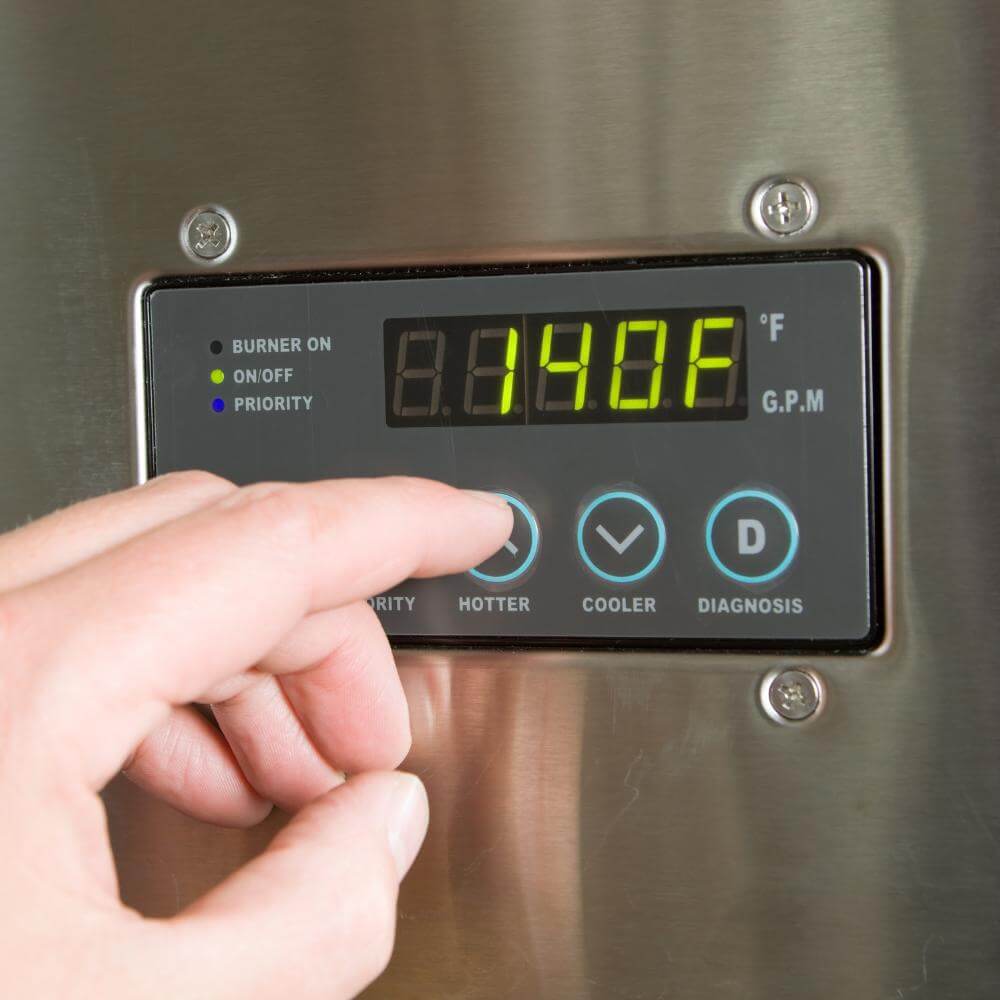
You have the option to purchase a tank or a tankless water heater for your camper van.
Tank Water Heater
A tank water heater requires a tank to hold a certain amount of water. Once that water runs out, so does your hot water.
A water heater with a tank will take up more space and weigh your van down. This style is not as efficient as a tankless option but is the more affordable option.
The most common type of camper van water heater that requires tanks include:
- gas
- electric
- diesel
- calororifiers
- combi boilers
Tankless Water Heater
A tankless water heater comes with no tank attached, it will heat endless amounts of water at a time. If you don’t want to run out of hot water, go with this option. This option is best for those with smaller camper vans because they save more space and are lightweight.
Tankless heaters also use less energy, but the big downside- they are more expensive than tank water heaters.
You still need some sort of tank for a tankless water heater, but that could be an external source like hookups at a campground, or you can use a bucket.
Most tankless water heaters are LPG or Propane.
Water Usage
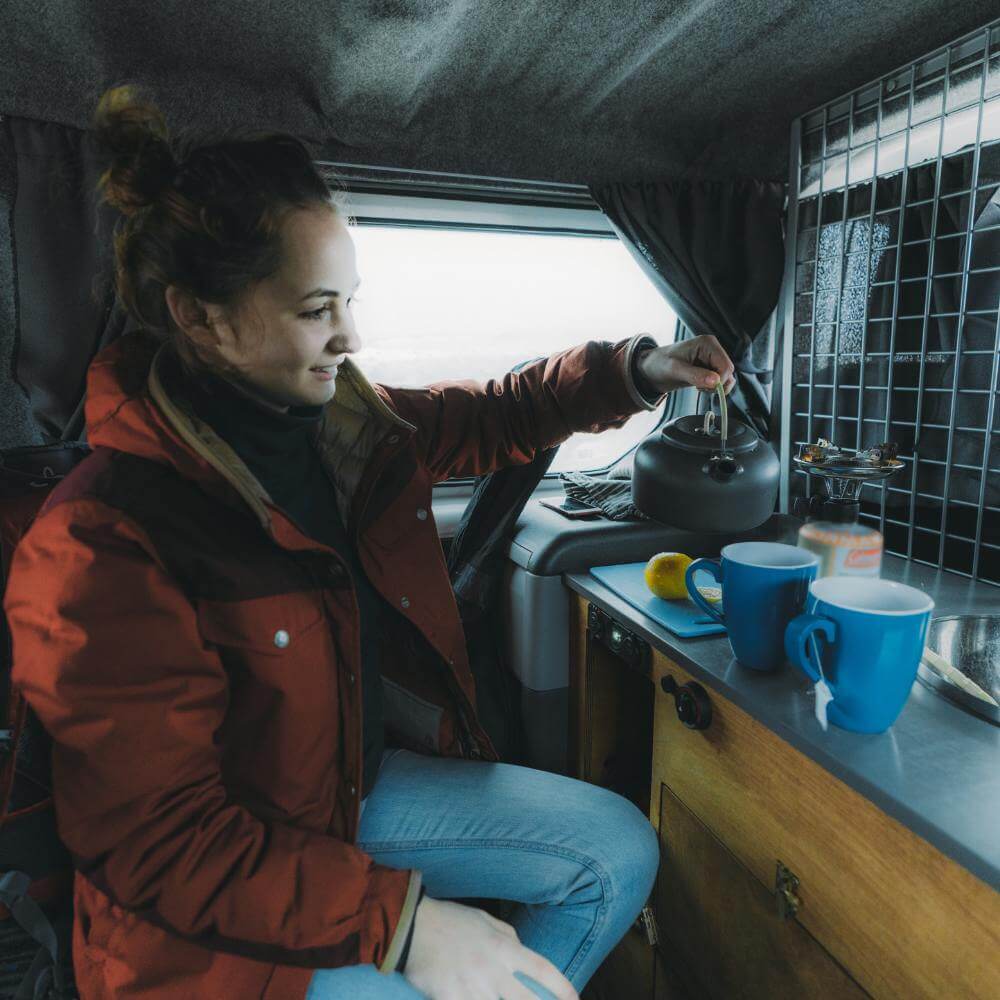
How much water you need is important when deciding which camper van water heater to choose.
If you need hot water for washing dishes, showers, and laundry, I recommend using a tankless option. Tankless options allow for more hot water for more activities.
If you only need to take a short shower, go with the cheaper option- a tank water heater. You could also use the solar shower or boil water on a stove if you only need a quick rinse.
If you’re planning on drinking coffee and that’s it, you may want to bring some water to heat on the stove instead of packing a heavy heater unit.
Power Source
There are several ways a water heater can operate:
- Propane
- Diesel
- Gas
- 12v
- Shore power/electric
Most water heaters need 12v connections or batteries to run the pump. Decide which power source is best for your lifestyle.
Go with diesel or gasoline if that is what your van already has. FYI you cannot run diesel off gasoline, and you cannot run gasoline off diesel-powered water heaters.
If you want a propane-powered water heater, make sure you have enough room for spare propane tanks. You can also store propane tanks outside your van and mount a connection.
If campground traveling is more your style, you may be better off installing an electric water heater. You can also plug these into a generator if you find yourself off-grid.
Installation and maintenance
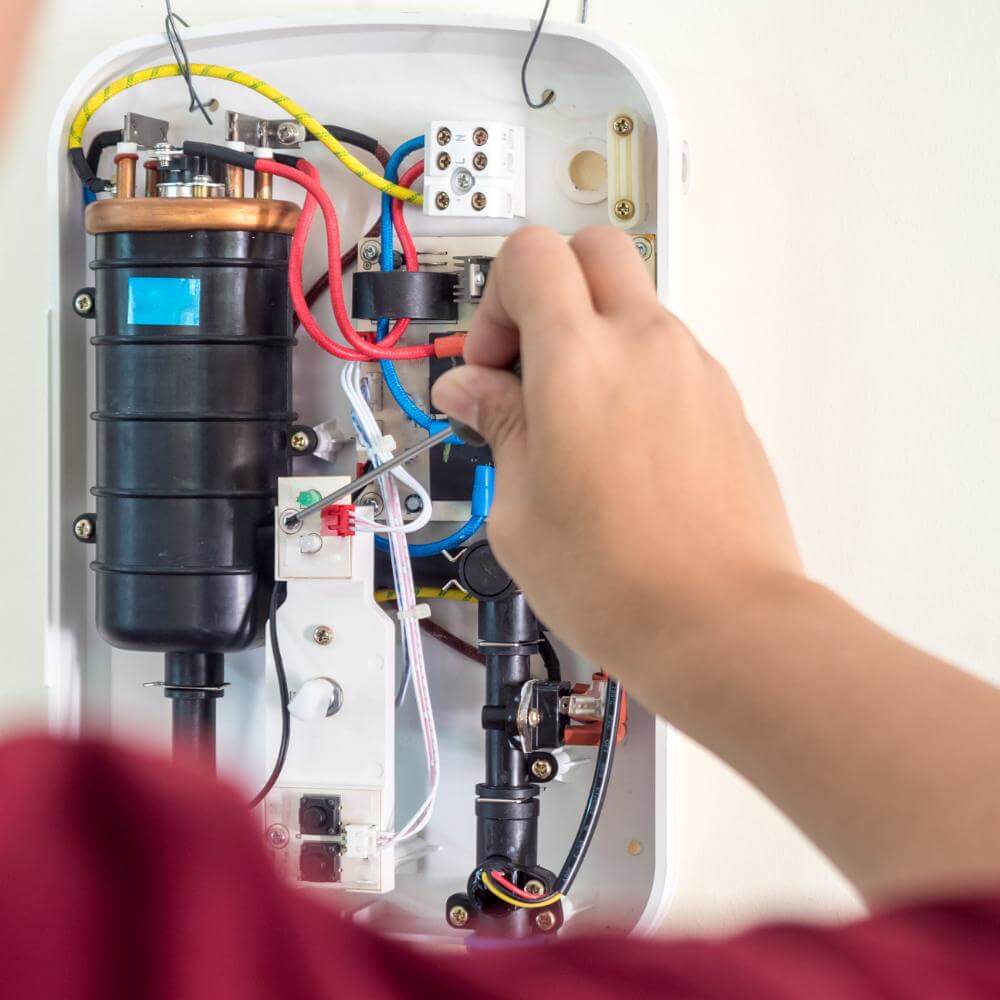
Sometimes installation, like a wood stove water heater, can be a bit complicated and maybe something you don’t want to figure out. Propane-style water heaters are the easiest options because they require little setup as long as you vent them out.
Options such as diesel, gas, and calorifiers require an extensive setup. Regular maintenance on these systems can be a bit cumbersome as well. Know what you are up against and be prepared for a complicated setup.
Portability
Some water heaters are more portable than others. If you have a shower set up on the outside of your van, you may want to consider a portable water heater option like a solar shower or a propane water heater.
Some water heaters like wood burners, calorifiers, diesel, and gas require extensive plumbing that won’t allow you to move the system.
BTUs
BTUs describe hot water output in water heaters. Typical water heaters in vans, campers, and RVs typically have 20,000 to 60,000 BTU/hour.
You want BTUs in the middle range of 40,000 for camper vans.
The hotter you want the water, the more BTUs you will need and the more energy you will use to operate.
In Conclusion
Im so glad we could help answer some of your questions about water heaters, if you have any more options let us know in the comments below.
Van life doesn’t have to be inconvenient, and you can still enjoy luxuries like hot showers. There are plenty of water heater options for all types of camper vans.
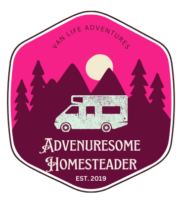
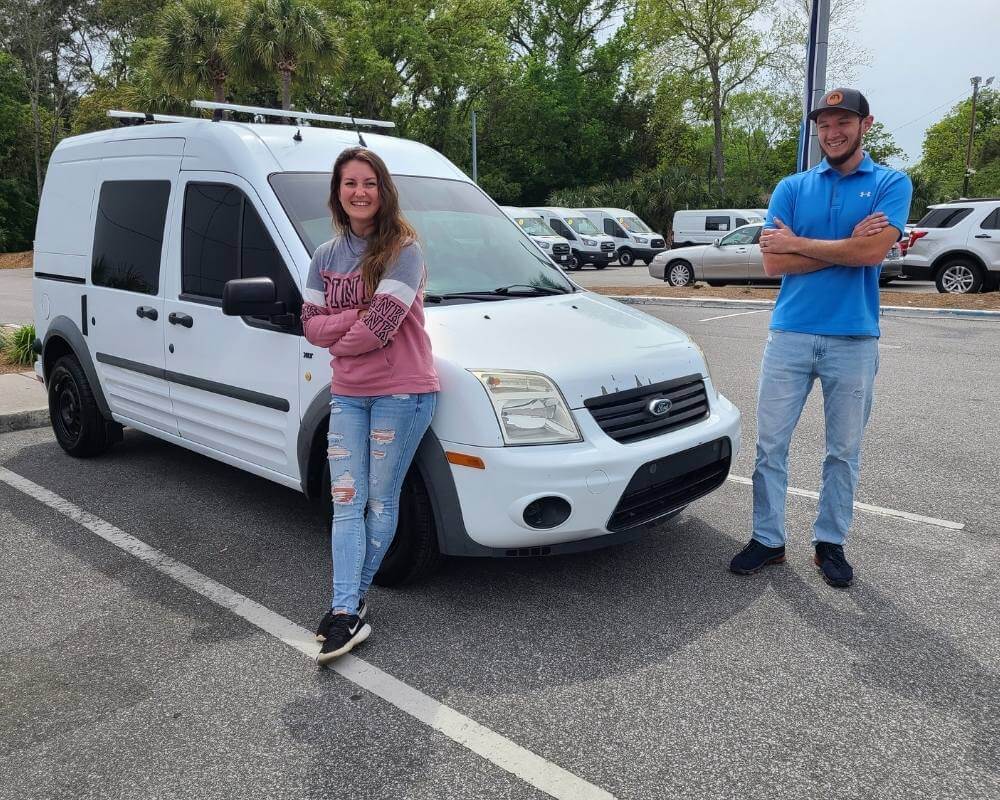
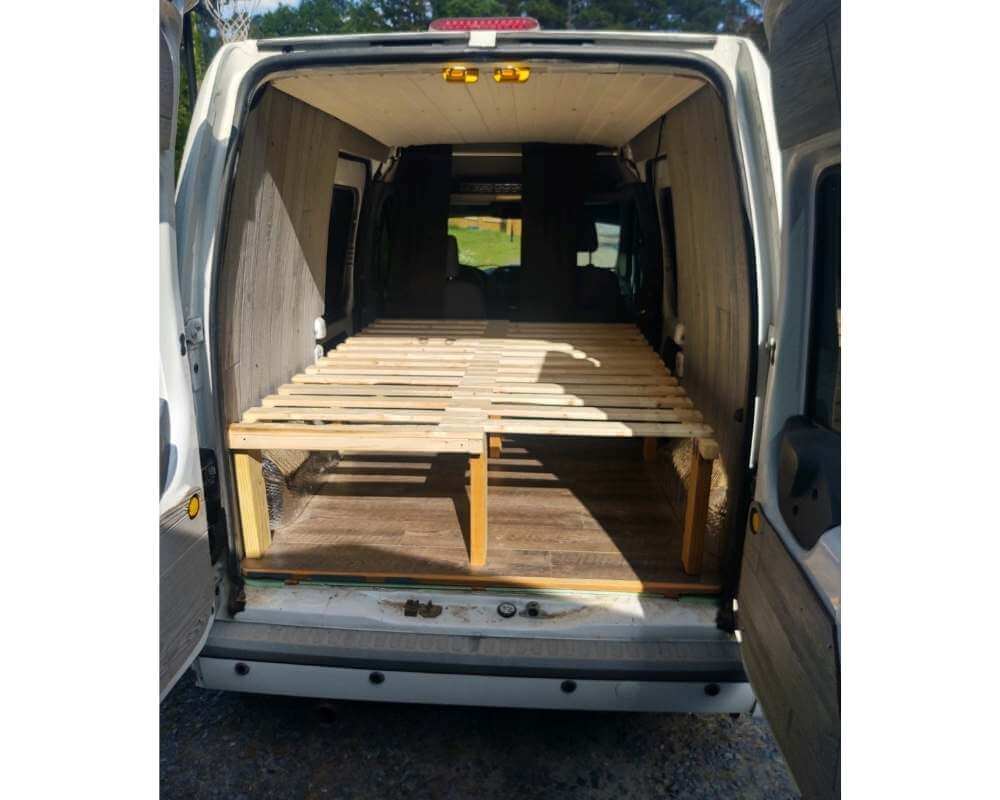

Saved as a favorite, I love your web site!
thank you so much!